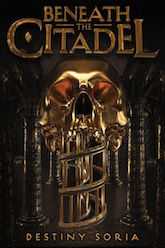“Stay angry, little Meg,” Mrs. Whatsit whispered. “You will need all your anger now.”
–Madeleine L’Engle, A Wrinkle in Time
I want to talk about anger. Well, not really. I’d actually like to talk about unicorns or salted caramel frappucinos (the poor overlooked stepsister of the pumpkin spice latte) or lavender chamomile pillow mist because it is the best invention of all time.
But every time I put my fingers on the keyboard all that seems to come out is anger. With every passing day, the space inside me for unicorns, frappucinos, and lavender chamomile shrinks, while my capacity for pure, incandescent fury only seems to grow and grow.
You know that old writing advice, to write what you know? Well, this is what I know. I know that we all hold a universe inside ourselves, with emotions as scattered and varied as the stars. I know that sometimes those stars shoot through us with celestial splendor. And sometimes those stars collapse into an all-consuming black hole.
We all have something to be angry about. If you don’t then you’re not paying enough attention. I’m angry at the rampant injustice in the world and the overwhelming helplessness I feel in the face of it. I’m angry at how often the selfishness of a few impact the lives of so many. I’m angry at how angry I am all the time. And more than anything, I’m furious that my generation came of age in a world we didn’t break but are still expected to fix. And that my generation is doing the same thing to teenagers today.
It’s exhausting to live this way. If I had my druthers, the universe inside me would be populated solely by bliss and delicious overpriced beverages. Instead I have a choice—the same choice we all have—to either get lost in the fury or to turn it into something beautiful. Something good.
So I decided to write books.
I used to joke that whenever someone pissed me off, I would write them into a novel and kill off their character. These days it’s less a joke and more a form of therapy, and I can’t recommend it highly enough. If you’re a writer too, and you’re ready to start channeling some of that anger into your stories, I’ve got three tips for you that might help you get started. Keep in mind that this isn’t a lesson in craft or revisions. These tips are for getting an early draft on paper using your gloriously messy glob of emotions as fuel.
One: Don’t be afraid of wish fulfillment.
When I was a baby writer, I cut my teeth on fanfiction. (Don’t bother asking me where you can find it, because I’ll never tell.) There’s a stigma around the fanfiction community that it’s just a bunch of writers inserting themselves into fandoms to live out their fantasies on the page. First of all, there’s so much more to the community than that. (Unfortunately my full treatise on the immeasurable value of fanfiction is best saved for another time.) Second of all, even if it was nothing but authors vicariously living their own fantasies, so what? I’ll admit that I used to fall into the trap of thinking that wish fulfillment was a Bad Thing. But the more curveballs life started to throw at me, the more I started using writing as not only an escape, but as a gift to myself.
Hope, love, friendship, justice, success, glory—whatever it is you need to keep going—don’t be afraid to give it yourself, even if it’s just in a first draft or in a story that no one else will never see. You deserve it, and this day and age is no time for self-deprivation for the sake of Art. Jaded cynicism and laissez-faire are so last decade. And here’s the thing: if that hope or justice or whatever is something you need, chances are someone else out there needs it too.
Two: Make it personal.
According to the infamous Michael Corleone in the film The Godfather, “It’s not personal… it’s strictly business.” If you haven’t seen the movie, he’s talking about his plan to murder two men for revenge. Sure, Michael, just business. Whatever helps you sleep at night.
I’m not going to make you read my treatise on The Godfather (also best saved for another time), but one of the big themes in the film is the blurred line between business and personal—so blurry by the end that you might argue the line doesn’t exist at all. For me, it’s an excellent parallel to politics. Some people like to pretend that we can separate partisan issues from our personal relationships, but the truth is, we can’t. Whether you like it or not, your political beliefs will always bleed into not only your interpersonal interactions, but the very fabric of who you are. There’s a line in The Godfather novel that didn’t make it into the movie, where Michael begins to sing a different tune: “Don’t let anybody kid you. It’s all personal, every bit of business. Every piece of shit every man has to eat every day of his life is personal. They call it business. OK. But it’s personal as hell.”
I used to think that the only way to write a compelling story was to keep myself, my hopes, my dreams, my opinions out of it because no one cared about them. To create Art, I thought, the author had to be dead (metaphorically, of course). But nowadays I’m thinking that’s not only hogwash, it’s also impossible. Everything I write is intertwined with who I am, because it’s coming from me. It’s all personal, so I say, why not lean in? Whether it’s your experiences, your dreams, or your beliefs—it’s worth sharing with the world, if that’s what you want to do. Take all that rage you’re feeling, or sorrow, or pain, and weave it into your words. Let the characters feel everything you’re feeling and make sense of it. Give the characters your voice to say everything you wish you could. You’d be surprised how much peace comes with just setting your thoughts free on paper.
Three: Get ugly.
You may disagree with me, but I don’t see a lot of value in online political debates (especially via Twitter or Facebook comments). I’m not saying it doesn’t happen, but you’ll be hard pressed to find someone whose opinion was changed by a stranger online. But you don’t need to look far at all to find someone whose life was changed by a book. The fact of the matter is, people don’t like being told they’re wrong. The great thing about stories is that they can sneak inside you and hunker down, feeding your thoughts and ideas like the literary version of Inception. (Okay, who’s going to make me that movie?) I don’t know about you, but I learned most of the rules on How to Be a Decent Human from books, whether they were simple picture books about manners or complex masterpieces like Pride and Prejudice.
So you can see how important it is that our world be populated by books that teach lessons like justice and equality instead of cruelty and bigotry. If you’re sitting at home, feeling overwhelmed by the news or if you’re tired of arguing with bigots until you’re red in the face (trust me, I’ve been there), then maybe it’s time to put those arguments into writing. You can be as metaphorical or on-the-nose as you want—anything goes in a first draft. And here’s the key: tell the ugly truth. Don’t bother softening it the way you might in polite conversation. Make your words a mirror and hold them up to the world. Write a story with truth so embedded in the pages that no one can read it and walk away unchanged. I know that’s a tall order, and it’s definitely easier said than done. But hey, so is writing a book. I believe in you.
Buy the Book


Beneath the Citadel
When it came to writing Iron Cast and Beneath the Citadel, I used all of the above methods at some point or another. Writing has become one of my strongest weapons of resistance. Of course there’s more that can be done in the face of injustice than create. You can volunteer, call your representatives, donate to causes, boost the voices of activists, and a million other things. I’m not going to talk about all those things, not because they’re unimportant, but because sometimes they aren’t feasible, for whatever reason. And also sometimes they just aren’t enough.
Here’s the amazing thing about art: it can come from anywhere, from anyone, in any form. Just think of all the poetry that came from sadness, all the paintings that came from passion, and all the music that came from bitterness. Think of all the marginalized voices throughout history that were drowned out by their oppressors, but nonetheless had something life-changing to say for anyone who cared to listen—then and now.
Think of all the new books that were born of the rage and turmoil of the past few years. Think of all the people who even now are writing novels to the tune of a relentless news cycle while their Twitter timeline updates in the background. And imagine all the stories that haven’t yet been written but are simmering in the minds of teenagers while their attention wanders in class, while the seeds of revolution take root in their hearts.
I may be angry all the time, but I’m also pretty damn excited, because here’s another thing that I know: fury isn’t always a black hole. Sometimes it’s a battering ram that breaks through barriers and knocks down walls. And sometimes it’s a crucible that forges something strong and new.
Turns out the old advice still rings true. Write what you know. Write that pure, incandescent fury into something beautiful. Let it flow through pen and paper, through paint and canvas, through chords and notes. Through any kind of art your mind can conceive. And if you’re too tired, or too sick, or too lost to create right now, that’s all right. Living is a form of creation in itself. Every breath you take is an act of resistance, and every moment you’re alive you are putting something lovely into the world. To quote a dear friend and author Kathryn Ormsbee, “Existing can be brave enough some days, don’t you think?” (The Water and The Wild).
So create what you can, however you can. Maybe you’ll use my tips and maybe you won’t. There’s no right way to navigate this universe. And after some of that anger has been channeled into something new, you’ll have more room for unicorns, frappucinos, and lavender chamomile pillow mist. Another kind of therapy I highly recommend.
Destiny Soria lives and works in the shadow of the mighty Vulcan statue in Birmingham, Alabama. Destiny’s first book, Iron Cast, was published in 2016 to critical acclaim. Her second, Beneath the Citadel, is available now.










